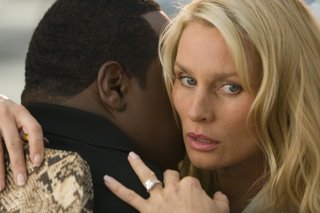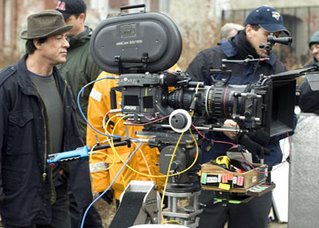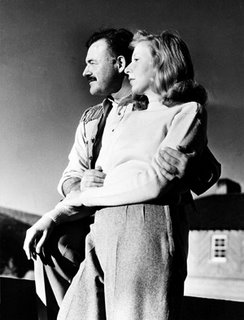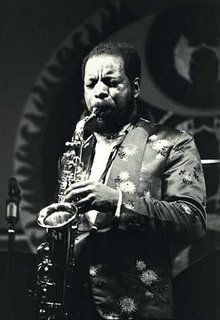Nicollette Sheridan Goes Undercover-- Code Name: The Cleaner (Q & A)
 As mentioned earlier, I covered the press junket for the upcoming spy comedy Code Name: The Cleaner starring Cedric the Entertainer, Lucy Liu and Nicollette Sheridan. Here Nicollette, who also stars in the popular hit ABC series Desperate Housewives, talks about the film, what's happening to Edie on DHW and dancing in her panties on camera...here's what went down...
As mentioned earlier, I covered the press junket for the upcoming spy comedy Code Name: The Cleaner starring Cedric the Entertainer, Lucy Liu and Nicollette Sheridan. Here Nicollette, who also stars in the popular hit ABC series Desperate Housewives, talks about the film, what's happening to Edie on DHW and dancing in her panties on camera...here's what went down...Q: So what attracted you to this? Why did you want to do it?
Nicollette Sheridan: It would have to be that big, bad, cuddly, brilliantly talented Cedric the Entertainer.
Q: So he convinced you or it didn’t take much convincing?
NS: Well they sent me the script and everything I’ve ever seen Cedric in, he just warms your heart and we did a read through of the script here at this very hotel. And while we were doing the read through and our parts came up, we just started riffing and playing and there was just a chemistry that was undeniable and I thought this is going to be a lot of fun and it lived up to everything I thought it was going to be. I was sad when it was over.
Q: Was it in the script that you were going to have to do that little scene for him in your panties and bra?
NS: Yes, I was.
Q: So how did you practice?
NS: There was no practice. No, I put on those little knickers, covered myself up in a robe, got to the set and thought, (crying voice) ‘I don’t want to do it.’ And of course I had to because I was being paid and I dropped the robe. It was about a good five minutes of feeling extremely uncomfortable but then you realize that you’re just another girl in another set of bra and panties and Cedric made me very comfortable. He was very, very supportive. (Laughs) He liked the lingerie.
Q: He said he didn’t mind seeing it done over and over again and inventing reasons why it should be done again.
NS: And so I had no idea what I was going to do. So the music starts and I start dancing across that room. Now I’ve seen Cedric dance. We’ve played around a bit and he’s got those moves. (imitates his moves) He’s got it going on. So I’m trying to do a couple of those thinking ‘No, I’m way too white to pull off that.’ Mortifying. So I just came up with my own crazy little dances and every time I’d come across that room, he’d get up and start riffing on what I was doing and they ended up with a pretty tame version of those.
Q: Oh, so the stuff may end up on the DVD then?
NS: You never know. You never know. Hopefully I have some sort of approval.
Q: Did you eat at all the day before that scene or were you at all like ‘Oh my God, I’m going to be parading around in my panties.’
NS: Gosh, I had been so busy I hadn’t worked out in quite some time and about a week and a half before I thought ‘Who am I kidding?’ You know, standing in the mirror and going, ‘This, as big as a Cadillac, on the screen?’ So I started running, running on that treadmill, running to work, running to the market, running with my dog, and luckily there’s a mountain in Vancouver called the Grouse Grind which is a very painful experience. And whenever I would have a little time off, I would just get my ass up that mountain, huffing and puffing and panting by the time I got to the top, and so it would have been nice to have had another six months.
Q: So how difficult was it still doing [Desperate Housewives] and doing the movie at the same time?
NS: It was chaotic but when you’re doing two things that you love, your adrenaline gets you through it. And I really didn’t feel that pressured nor exhausted at the time, but the moment it finishes, it’s like, ‘Okay, I’m ready for that day off.’
Q: So do you like working on comedies? Is that your thing now?
NS: I love doing comedy and I’ve been very lucky. I’ve worked with some amazing comedians but nobody like Cedric though. He just never stops. He never does a scene the same way twice. He’s just constantly got that sense of humor and that crazy mind of his working at full throttle.
Q: What was the craziest thing [that Cedric] did on set?
NS: (Laughs) Cedric’s Cedric. He’s always surprising. Really from the moment we arrived on the set ‘til we left, it was an experience. It was… there were a lot of jokes. Cedric travels with his posse known as "The Church" and he had a little song that he sings ‘Church is on the move.’ And so after work, you know, we’d all go and have a drink together, shake a leg together, bust some more of those moves that I could’ve done on screen, damn it, should’ve done! Yeah, the whole experience was very connected. It was really a group of people in a very creative environment having the time of their life.
Q: What about the scene with Lucy in the middle of the night at 3 o’clock in the morning shooting this bubble bath thing? I mean she said she was saying ‘Alright, enough! We got it!’ Was it painful for you?
NS: Yeah, it all culminates in this fight scene we have with Lucy Liu and me. Lucy and I basically choreographed the scene together with the help of a stunt coordinator and we really wanted it to be brutal and authentic. None of this girlie cat fight business, slapping and hair pulling and nail breaking, you know. This was going to be the real deal. So as we got close to shooting that, Cedric has these fantasies throughout the film so of course he comes up with the Cedric male fantasy of us in a bubble bath trying to lure him in. Uh huh. So at first Lucy and I thought, ‘No, it’s not going to happen’ and slowly we warmed to the idea because it was befitting with the fantasies that occurred throughout the film and once we established how we would do it and what we would be wearing, it would be an unusual take on a brutal fight scene. And it was, so yes, to get to your question, it was freezing, we felt a little idiotic being in this parking lot in cold weather with people all around blowing bubbles and just trying to make something funny happen and hopefully people will like it.
Q: Was she a good partner? I mean in that way. She’s got a sense of humor.
NS: Oh, she’s fabulous. I wish we’d had much more to do but our storylines really didn’t cross paths. You know, people are likening it to “The Bourne Identity.” They should just call it “Mistaken Identity.” (Laughs) Nobody is who they appear to be.
 Q: So can you say anything about what’s coming up on Desperate Housewives? You dumped Mike because he was a supposed murderer.
Q: So can you say anything about what’s coming up on Desperate Housewives? You dumped Mike because he was a supposed murderer.NS: Well, when people come out of a coma, they tend to get agitated and be aggressive and so I don’t think Mike really was what Edie signed up for after he came around and the thing that really pushed her over the edge was sitting in that jail cell with him, or outside of the jail cell, because it took her back to her mother and her mother was an alcoholic and was in jail for many different things, and I think that she just really panicked when she was there confronted with this situation yet again and basically made up her mind at that moment that she just couldn’t take it.
Q: What’s ahead for her? What do you want to see? Is there going to be another guy?
NS: Well I was just told that she’s going to do something that is really going to cause an uprising with all of the girls on Wysteria Lane and I think it’s a damn good idea. So, yes, there is something to look forward to.
Q: The stuff you did on Knot’s Landing gave you a little head start on everybody that’s on this one now, on Desperate Housewives?
NS: You mean as far as having an audience.
Q: Well, that but also doing that kind of dramatic television soap opera?
NS: Well Knot’s Landing”was a nighttime drama. We don’t use that soap opera term. (Laughs) My character on that was really a role model for women. Women would constantly come to me saying how Paige helped change their lives because Paige was a business woman, she was strong, she was smart, she was in a man’s world holding her own, and I loved that about her. You know she was more of a role model versus Edie who… I don’t know if anybody should be following in her footsteps per se. But she is outspoken and she knows what she believes in and she will say it as it is and if you can’t stand the heat, stay out of the kitchen.
Q: Have you and Eva [Longoria]discussed engagements and weddings plans and all that kind of stuff?
NS: We haven’t yet. We haven’t. I was just in Australia.
Q: Have you seen her ring?
NS: I’ve seen pictures. It’s beautiful. He has good taste. I’m not sure how much involvement she had in it but I think she was surprised. Yeah, I’m happy for her.
Q: It says in your bio that you like Shakespearean theater.
NS: Yeah, you know I grew up in England and schooling is very different over there. So I went to a preparatory school where when you go on an outing, it’s not to the beach. (Laughs) It’s to museums, it’s to go to the theater, the Royal Ballet, the Royal Shakespearean Company, and so I grew up on that and when I moved over here, I was always drawn to… English was my favorite subject and there were plays that were put on at school but if anybody ever wanted anything to do with Shakespeare, it was sort of in my blood from childhood. So at some point I supposed I’m going to have to hit the stage.
Q: If we dropped you in London for two weeks, would we hear a different Nicollette Sheridan accent?
NS: (with British accent) When I go home, the accent does come out. It does. Yes.
Q: What’s the funniest movie you’ve ever seen? What really makes you laugh whenever you see it?
NS: Oh lord, that’s a tough one, isn’t it?
Q: I’m getting a lot of Caddyshack. Some people are saying Borat because that’s recent.
NS: I haven’t seen it yet. I don’t know. I’m going back in time trying to think what…
Q: What about The Party with Peter Sellers?
NS: Oh yes. Brilliant. Well, that was a good one. Oh yes, Monty Python, I grew up on them in England.. Holy Grail. Absolutely. And Eric Idle is just fabulous. Yes, I have the pleasure of knowing him and Spamalot Oh, from the moment it started at the beginning, I started laughing and I never stopped. I left with the worst stomach ache from laughing so hard.
Q: It says here you’re developing projects for film and TV. What have you got in the works?
NS: I am. Before I started Desperate Housewives I was penning a comedy that I think is unusual and smart and a very funny, sordid relationship and so, even though I don’t have the time now to do that because it would be an impossibility to do two shows at once and ABC would never let me out, I still want to get that on air because I think it could be something special.







































